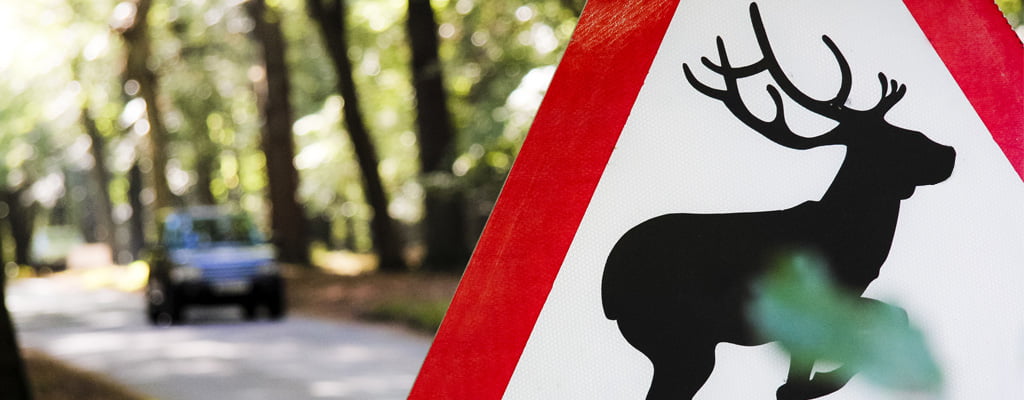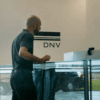
Findings from the insurance comparison website GoCompare have shown that over two-thirds (68%) of drivers said they would not know what to do if they hit a larger animal. For business drivers spending many hours on the roads, encountering animals is inevitable and clear guidance may help to fill this gap in their knowledge. See our advice below about the best ways to avoid a collision with an animal, and what action to take if one does occur.
Tips for avoiding collisions with animals
- Make sure you use observation and anticipation. In rural areas, dips in the road can hide animals up ahead, but correctly anticipating this will involve reducing your speed to a level where coming to a complete stop is possible. Remember, you should always drive at a speed that allows you to stop within the distance that you can see to be clear.
- If you see animal warning signs, slow down and be on high alert as it’s likely they will cross in the area.
- Some animals such as deer tend to move in herds. If you see one, there are likely to be more, so stay vigilant and be ready for more than one to step out into the road at a time.
- If you see an animal up ahead, reduce your speed and try to warn other drivers that you’re doing so with early use of your brake lights.
- Try to avoid having to swerve to avoid hitting an animal as it could mean driving into a ditch or into oncoming traffic.
- Business drivers in residential areas should be wary of domestic cats and other pets darting in front of their vehicles.
What to do if involved in an animal collision
- Drive to a safe place and pull over.
- Call the police to alert them of the animal and be precise about where it’s located (see below about which kinds of animals you are legally required to report).
- Do not approach the animal – it may result in further injury to the animal, or to yourself.
- Contact the RSPCA or a local wildlife centre who may be able to help the animal. See the RSPCA website for the numbers to call and where to find you nearest wildlife centre. Make sure to have your vehicle parked in a safe place before using mobile phones.
What the law says – The Road Traffic Act 1988
- Drivers are legally required to report an animal collision to the police if you hit a dog, horse, cattle, mule, sheep, pig or goat.
Would your drivers know what to do in the event of collision with an animal? Detailing the procedure for any on-road incident in your fleet policy or driver handbook means that drivers will not be caught out in the event of an emergency, and will have clear instructions to follow in potentially stressful situations.
Contact us today for help building a fleet policy, or to find out more about our fleet management solutions that can help make your at-work drivers safer no matter what they might encounter on the road.


